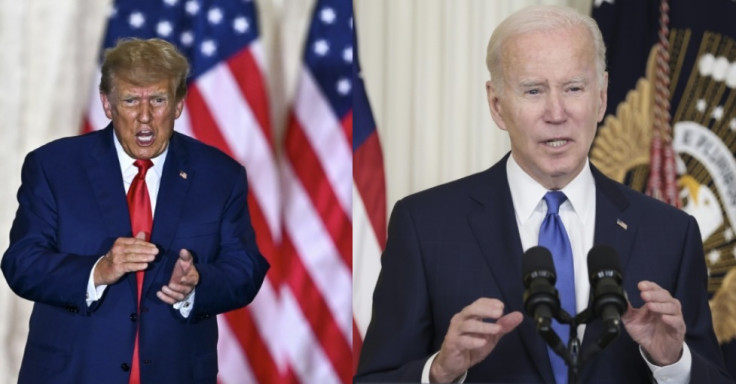
As the United States moves toward its presidential elections, a new poll shows that President Joe Biden continues to bleed support among Latinos in the country, who are shifting their support to Donald Trump.
The survey, conducted by The New York Times and Siena College, shows the former president with a six percentage point lead over the current one, 46 to 40%.
An accompanying article provides some nuance on the figures: it says that "because Latino voters make up just 15 percent of the electorate, the poll's sample size is not large enough to assess small difference reliably," and that for a "subgroup that size, the margin of error is 10 percentage points."
However, it does show a continuing trend, as previous surveys have reached similar conclusions despite Democrats' analysis that Trump's anti-immigrant rhetoric and policies would continue to repel Latino voters. Even though that has been the case for many years, it's increasingly not anymore.
Trump has been steadily gaining support with the Latino electorate during the past decade, increasing from 28% in 2016 to 36% in 2020, according to the Pew Research Center. In 2022, Republicans got 39 percent of the Latino vote, the highest percentage since 2004.
Rhetoric towards immigrants could take the back seat in this year's elections. A CNBC-All-America survey from late December argued that while Latinos have traditionally aligned with Democrats' more progressive policies, the economy is set to play a critical role in next year's elections. And there, Trump has a clear lead.
Moreover, a survey by UnidosUS showed that inflation, the labor market and the economy are currently the biggest concerns for this demographic.
Back to the NYT-Siena poll, another question helps illustrate Biden's dwindling levels of support among Latinos: 57% of respondents said they believe the country is headed in the wrong direction, compared to 29% who said it's going in the right direction.
And at a general level, Latinos show a higher level of discontent with the political system than other demographics surveyed, as the amount of respondents who said they are not at all likely to vote is much higher than the rest: overall, 11% said they won't head to the polls, compared to 3% of Whites and 4% of Blacks. Moreover, 30% said they are almost certain to vote (compared to 40% of Blacks and 58% of Whites).
Another challenge for Biden in this area is the fact that many younger voters, a demographic in which the president still seems to have a lead, are less sure about turning out to vote next year. A December poll by Harvard Kennedy School's Institute of Politics revealed that young Latino voters had the steepest decline among all groups who said they would definitely vote in 2024.

Concretely, the amount who said they would "definitely" vote next year dropped 16 percentage points, from 56 to 40 percent, compared to the poll conducted in the fall of 2019. That is almost 30 percent less than four years ago, making Latino voters the second group with the least amount of respondents behind Black voters.
In late January, The Latin Times asked experts from two organizations from the Latino Community why they believe this to be the case. They are UnidosUS and Latino Victory and both agreed that a concept that can help explain this is communication.
Rafael Collazo, Executive Director of UnidosUS's Action Fund, said: "We believe Democrats are failing to effectively communicate why Latinos SHOULD vote for Biden in for another term."
Collazo added that "being anti-Trump is not a strategy," and that "voters need a reason to rally behind their candidates." "By not consistently communicating the wins the Biden administration has had in the past four years, which have largely benefitted the Latino community, they are not giving our community a reason to go out and vote for him," he added.
Latino Victory Executive Director Katharine Pichardo-Erskine concurred and said: "in one word: communication." "Although there has been an increased effort for Democrats to communicate with Latino voters, there is still an opportunity to invest more and sharpen the messaging so that people can see clearly how major policies have helped them directly. Latino voters are "persuasion voters," and candidates must give Latinos a reason to vote."
© 2025 Latin Times. All rights reserved. Do not reproduce without permission.




